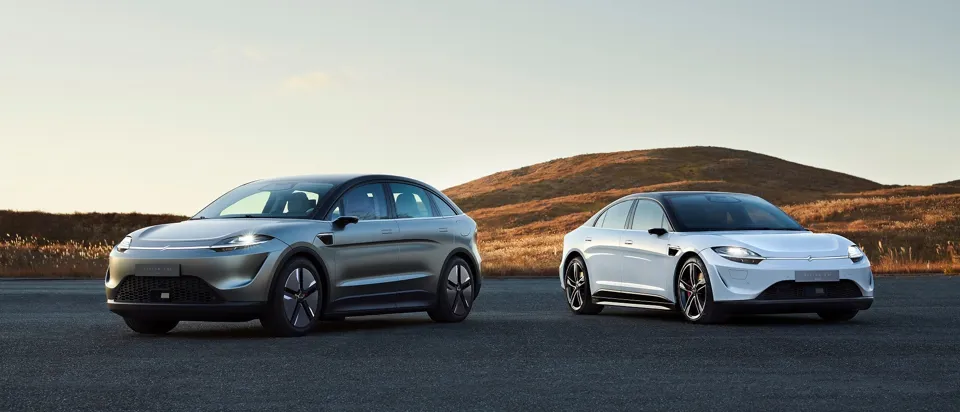Honda and Sony will form a partnership to develop and sell electric vehicles (EVs), with the first model expected by 2025.
The two Japanese firms have signed a memorandum of understanding and plan to launch a new company before the end of the year.
Honda will be responsible for manufacturing the new vehicles and managing aftersales, while Sony will develop a mobility service platform.
Toshihiro Mibe, director, president, representative executive officer and CEO at Honda Motor Co, said: “The New Company will aim to stand at the forefront of innovation, evolution, and expansion of mobility around the world, by taking a broad and ambitious approach to creating value that exceeds the expectations and imagination of customers.
“Although Sony and Honda are companies that share many historical and cultural similarities, our areas of technological expertise are very different. Therefore, I believe this alliance which brings together the strengths of our two companies offers great possibilities for the future of mobility.”
Sony demonstrated its desire to enter the automotive space in 2020, when it revealed the Vision-S concept car at the Consumer Electronics Show (CES). A year later, the technology firm strengthened its approach by showcasing a second vehicle at CES 2021 and announcing the launch of a mobility company.
Kenichiro Yoshida, representative corporate executive officer, chairman, president and CEO of Sony Group Corporation: “Sony’s Purpose is to fill the world with emotion through the power of creativity and technology. Through this alliance with Honda we intend to build on our vision to make the mobility space an emotional one, and contribute to the evolution of mobility centered around safety, entertainment and adaptability.”
Bakar Sadik Agwan, senior automotive Consulting analyst at GlobalData, added: “The collaboration will combine Honda’s vehicle manufacturing, components, and battery production/assembly capabilities with Sony’s experience in imaging, sensing, in-vehicle-infotainment, connected and autonomous technology.
“Sony already enjoys several trading relationships within the automotive industry as a key supplier of image sensors and electronic components such as infotainment systems. However, there is a question mark over how much additional value Sony would be able to unlock by co-developing an entire EV project if key operations such as manufacturing, development of EV components, battery pack and motor drive units will be done by Honda.
“The move indicates Sony’s future vision is to put its brand name on battery-powered vehicles but remain only a technology partner rather than EV manufacturing as it requires expertise, high expenditure, higher volumes and limited margins. This is contrary to other businesses such as consumer electronics, photography, infotainment, and video game production, where Sony is present.
“Sony’s influence is much more likely to be felt is in the vehicle cabin. With the move away from combustion engines to EV drivetrains, automakers will be looking to ‘in-cabin’ technology to differentiate their offerings, especially as increased semi-autonomous functions give cabin occupants more time to focus on non-driving activities. Here, Sony’s wealth of knowledge in telecommunications, infotainment and UX design could help set a future Sony car apart from rivals with less-advanced in-cabin experiences.
“It will be interesting to wait and see if Sony’s EV plan could make a difference in a time where new entrants such as technology giant Foxconn are developing their EV manufacturing capabilities. However, on the flipside, it is also the best opportunity for Sony as it partners with one of the world’s largest automakers. EVs are likely to be much less defined by their powertrains but more by the strength of their technology packages and, here, Sony has the potential to make a big impact.”
> Interested in comparing electric vehicle data? Check out our EV tool.
> Interested in ensuring the efficient use of EVs. Check out our dedicated editorial sections: Insight & policy | EV news | Charging & infrastructure | Costs & incentives | Benefit-in-kind | EV case studies | EV road tests


















Login to comment
Comments
No comments have been made yet.